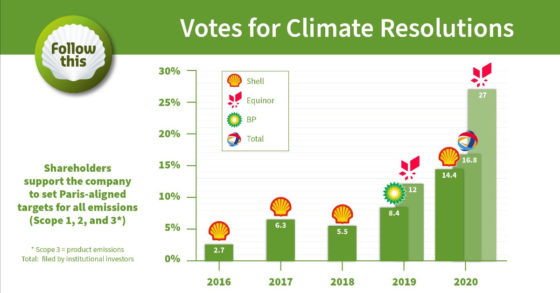Hi. Thanks for watching this sub-1 minute vlog.
On May 24, the enigmatic, protesting folk troubadour-turned-rocker and Nobel laureate who is Robert Zimmerman turns 80. For at least 60 of those years, the singer also known as Bob Dylan has distilled love, war, anger and romance into songs whose force and prescience seems to defy the passing years.
“Everybody who does my job exists in the shadow of Bob Dylan,” songwriter Steve Earle told GQ magazine last year, “There are two categories: Dylan and everybody else. It's as simple as that. And it's going to be that way until he dies”.
The larger part of the enduring fascination with Dylan lies in the elusive and hydra-headed quality of his lyrics. Even the smartest insight or observation into his life is of little help in understanding Dylan’s prodigious body of work. “He flirts with the sort of meaninglessness poets flirt with, rather than the sort pop singers flirt with,” wrote the literary journalist Sam Leith.
Hence the mysterious allure. Even when - not infrequently - the singing is awful.
Dylan’s instrumental prowess - on guitar, keyboards or harmonica - is inimitably crucial to the art, although his technical skills are said to be unexceptional. Even a recent article in Britain’s Daily Telegraph by Neil McCormick, the paper’s pop critic, asserted: “We live in the age of Bob Dylan”. In the house journal of British conservatives, that’s a measure of the singer-songwriter’s improbable reach and reputation.
Coming this week
On Bob’s birthday (or if time runs out, as soon as I can thereafter), I’ll post A voice like sand and glue - borrowing my title from David Bowie’s song about “a strange young man called Dylan”.
The folk singer - who in 1965 switched his acoustic guitar for a plugged-in electric, famously prompting the catcall “Judas! from a jeering fan - has built a legacy of epochal proportions.
Unlike many - perhaps most - artists, the substantial published details of Dylan’s private life uncovered by biographers, fans and journalists yield few clues to his creative process. He writes fast, reportedly. His back catalogue of songs, many still unpublished, is monumental.
In aggregate, these lyrics comprise a churning ocean of rage, romance and learned jibes: they poke and lap at the phenomenon of his own celebrity, his religious appetite and the restlessness in human nature and society. “Music is how I worship,” Dylan said recently - though I can’t find the source. Although known for his impish mockery, that comment has the ring of more reliable truth.
More from me in this sub-1 minute video update:
One thing I’ll try not to do in this post is to succumb to a powerful temptation: all Dylan fans are sustained by the small but routine satisfaction of captioning our own lives with Dylan lyrics. So indelible is their imprint in our memories, that it’s unavoidably easy to narrate the incidental frustration and solace of our day-to-day lives in tangy phrases from the albums.
I’ll try to avoid that, even if it’s this mystical soundtrack to the tribulations of everyone else’s lives that offers perhaps the best illustration - an index, perhaps - of Dylan’s talents. This after all is exactly what Dylan does for himself. With every stop on his non-stop tour of recent years, Dylan has teased new meanings not just from new songs but also from lyrics penned decades ago.
To take just one example: A Hard Rain’s A-Gonna Fall, first performed in this acoustic version in the summer of 1962 morphed into an electrified whine in this 1976 version from the Rolling Thunder Revue - now watchable in Martin Scorcese’s documentary for Netflix. The song can still feel overpowering as an apocalyptic and apocryphal anthem for today, as Patti Smith demonstrated in this 2016 tribute at the bejewelled Nobel prize dinner in Stockholm.
Any kind of text is - ultimately - a limited medium to portray a self-described “song-and-dance man”. Pantomime would be better. Not least because Dylan takes obvious pleasure in confounding all those who take him too seriously.
The sleeve notes to Biograph, a box set of 53 tracks released by Columbia Records in 1985, begin with a description of a party where guests were invited to dress as characters from a Dylan song. Someone arrived with “twenty pounds of headlines stapled to his chest” - from Stuck Inside of Mobile with the Memphis Blues Again, on his celebrated 1966 album Blonde on Blonde.
No doubt something of this fascination - a potent admixture of karaoke, idolatry and learned discourse - motivated the fans who gathered in Amsterdam in 2000 to argue that Dylan’s gifts deserved a Nobel prize. By 2016, the Swedish Academy agreed, citing his contribution to “having created new poetic expressions within the great American song tradition”. Which, naturally, doesn’t begin to capture it.
Follow This: Bringing It All Back Home
As this year’s season of oil companies’ annual general meetings draws to a close, here’s a quick update on investors’ support for the climate resolutions tabled by Follow This, the Dutch activist shareholders who cut their teeth at Shell.
Five years after their first climate resolution in 2016 won 2.7 per cent of the ballot, this year’s slightly revised equivalent won the support of 30% of Shell’s shareholders. Those investors defied Shell’s advice to vote against the resolution - and in record numbers, more than doubling the 14% of votes in 2020.
For the first time, the activists’ resolution vied with an in-house climate resolution drafted by Shell and recommended by its board. If imitation is the sincerest form of flattery, then activists might blush at Shell’s decision to ask shareholders to support the company’s ‘new’ Energy Transition Strategy.
The Follow This resolution asked, again, for truly Paris Aligned emissions reduction targets, and for Shell to shift its investments towards renewables. The final tallies showed 11% voted against Shell’s resolution, a minority shareholder rebellion contrasts with 19 other resolutions, where up to 99% of votes followed management advice.
“This year for the first time, Shell put forward its own climate plan for a vote - and yet again, shareholders are sending a strong signal that Shell will have to set new targets. Shell’s policy falls short of what is needed to protect investors from devastating climate change,” said Mark van Baal, founder of Follow This
Dutch institutions take the lead
Under the UK corporate governance code - Shell has a dual listing on stock markets in Amsterdam and London - the company is required to go back to investors to discuss the concerns raised by any resolution which secures more than 20% of the vote. Rival BP is in the same position, despite the failure last year of an attempt by BP’s directors and the Follow This activists to agree on a joint resolution.
Shell CEO Ben van Beurden said the company would pay special attention to those institutions which voted for both the activists’ resolution and the company’s alternative. But the rationale for backing both proposals is easy to follow: the Follow This proposal asks for emissions targets for the short- and medium-term that are truly Paris-aligned and backed by substantially higher investment in renewables.
To date, none of the big oil and gas producers satisfies these criteria. BP and Shell, for example, each propose to increase total emissions to 2030, despite promising to comply with the longer-term goal of the Paris Climate Agreement of net-zero by 2050.
Hence the decision this year by Dutch pension fund PFZW to support the Follow This resolution for the first time, bringing the tally of large investors in the Netherlands that voted in favour to eight out of the top 10. These votes have been instrumental to compel Shell to advance its climate ambitions in previous years.
Climate resolutions win historic majority in first US ballots
Shell’s AGM comes shortly after a historic victory for climate resolutions at two US oil and gas majors, as I reported here in Vlog #10, Wk 19-21. Given the opportunity to vote for the first time on climate emissions, shareholders in the US companies made history.
On May 11th, 58% of shareholders in ConocoPhillips voted in favour of the Follow This climate resolution - the first majority vote in any jurisdiction. The following day, 80% of shareholders in Phillips66 voted for a similar resolution, which asked the company to set short-, medium- and long-term emissions reduction targets covering all the emissions of their operation and products.
Ceres, co-founder of the Climate Action 100+ alliance of institutional investors in the worlds’ most polluting companies said: “Shareholder proposals at Phillips66 and ConocoPhillips this week sent a clear signal to the oil and gas industry that investors want to see ambitious climate action — and small commitments are no longer enough.”
Keep well. Met vriendelijke groet!
Mark
READ MORE
Deventer murder: trial and re-trial by media
The handyman, the pollster and the podcast - a shocking true story
Coalition partners miss a trick with ‘leaked’ circular economy plot
A tale of two poets opens a new Dutch chapter in the culture wars
Sex Education: Dutch style
Coming soon, special correspondent Betsy Middleton writes for 2nd Opinion on the hard facts about sex education in the Netherlands. In a culture renouned for tolerance and pragmatism, Sex Ed Dutch-style is anything but: the syllabus can vary according to racial criteria, religion and - arguably - prejudice, in ways that educators have failed to curb.




